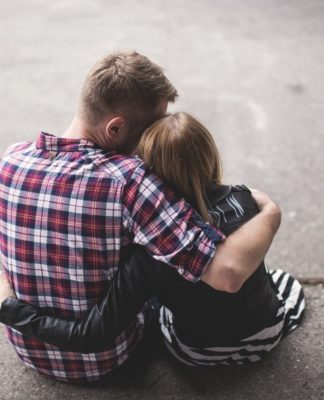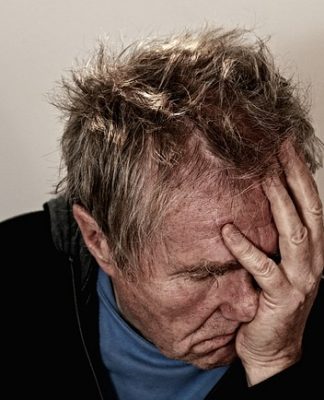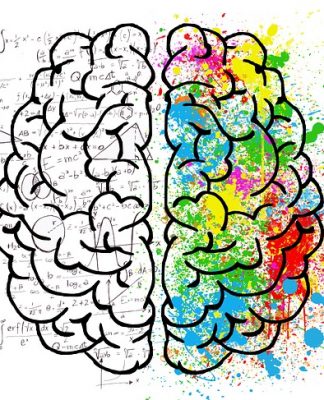Experiencing the force of nature at its greatest can be terrifying. Some choose to stay and hold on while others choose to leave not knowing how their safe place called home will look once they return. Both experiences involve overwhelming fear and moments of intense uncertainty and stress.
Everyone responds in different ways and everyone copes with overwhelming experiences as they can. At the same time, when survival mode is turned on and it stays on for a prolonged time, there are emotional and psychological consequences. The end of the storm is not the end of the internal commotion it caused our minds. When we are not able to deal and process intense experiences of fear or terror, we begin to experience symptoms such as anxiety, depression, and even post-traumatic stress disorder.
What to watch out for?
Anxiety, depression and post-traumatic symptoms exhibit themselves in a wide variety of ways. Some people may experience symptoms a week after trauma and some even years after. This makes things difficult because we have the idea that as time goes by, we heal. The reality is that if we don’t process our experiences, we might repress them and be unaware of them, but they are still there affecting our perception of the world, of ourselves, and of others. Also remember that children tend to be more susceptible to developing symptoms since they don’t have the psychological tools required to process and make sense of intense experiences.
These are some symptoms you can look out for to see if someone you love is experiencing a post-trauma emotional reaction related to the hurricane.
1. Sudden and unexpected Irritability or anger outbursts. Intense reactions of anger that are not proportional to the situation and that are uncommon to this individual
2. Sleeping too much or being unable to fall or stay asleep. Here we can also include having recurrent nightmares
3. Being disconnected and withdrawn from others
4. Experiencing physical symptoms of anxiety such as: being unable to relax, feeling uneasy and shaky, feeling nervous, heart pounding and racing, experiencing hot and/or cold sweats, difficulty breathing, feeling dizzy and lightheaded or even fainting, feeling tingly, and wobbliness in legs
5. Loss of interest in things he/she used to enjoy
6. Having difficulty concentrating
7. Feeling jumpy and easily startled
8. Having repeated and disturbing thoughts, memories, images, or dreams of their experience with the hurricane
9. Feeling very upset when something reminds this person of their experience during the hurricane
The presence of these symptoms might be signs of intense anxiety, depression, and/or post-traumatic stress disorder. It is important that they reach out to an expert to help them because if left untreated, it could get worse.
How can I help?
There is so much that you can do to help your loved one as they heal from this terrifying experience. Here are some important tips:
1. Normalize their feelings: Many times when we start to experience some of the symptoms described above, we begin to think that there is something wrong with us. Perhaps some time has gone by since the hurricane, so we do not make the connection with this event. It is important to understand that this is a very normal reaction to an experience so intense as the one they lived. Normalizing it and knowing that there are treatments and there is help is very important because it provides hope and hope is a light and little engine that helps us keep going.
2. Listen, listen, listen: Allow them to give voice to their feelings. Help them label their feelings. Validate them in a non-judgmental way. Practice your empathy and be very patient.
3. Help them take care of themselves: remind them of good and healthy diet, help them exercise and go out and enjoy the sun and nature.
4. Help facilitate a good night’s sleep. Recommend a hot bath and massage before sleeping to help relax the muscles.
5. Recommend some mindfulness and meditation exercises, you can also do these together.
6. Have fun, find time to play and laugh!


 Dr. Castaños is a marriage and family therapist with 20 years of clinical experience specialized in relationships and trauma treatment who works with individuals struggling with relationships due to depression, anxiety, and/or past trauma. She works with couples that are stuck in a negative cycle and wish to reconnect and improve their relationships. She also works with families that are hurting and have difficulty communicating and connecting, especially with those families that work together and own businesses.
Dr. Castaños is the creator of an online program designed to help individuals that are struggling after the end of a relationship. This program is designed to heal from the pain caused from a break up while growing and learning about oneself.
Dr. Castaños is a marriage and family therapist with 20 years of clinical experience specialized in relationships and trauma treatment who works with individuals struggling with relationships due to depression, anxiety, and/or past trauma. She works with couples that are stuck in a negative cycle and wish to reconnect and improve their relationships. She also works with families that are hurting and have difficulty communicating and connecting, especially with those families that work together and own businesses.
Dr. Castaños is the creator of an online program designed to help individuals that are struggling after the end of a relationship. This program is designed to heal from the pain caused from a break up while growing and learning about oneself.


















